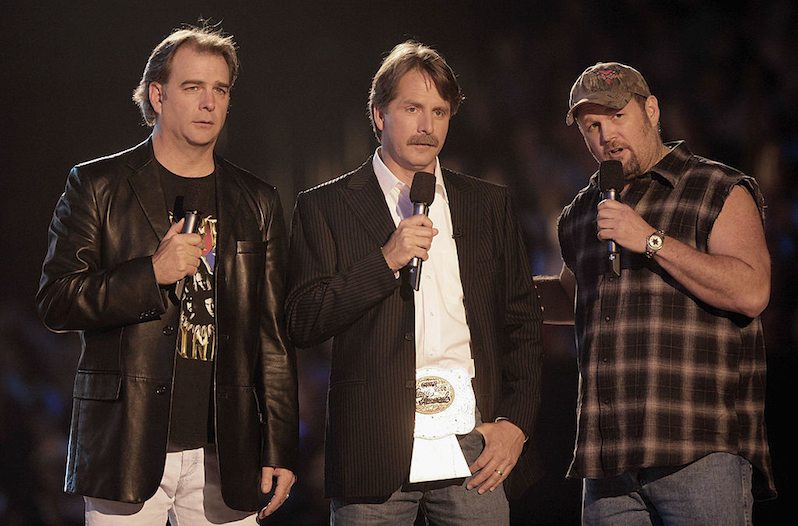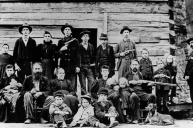[dropcap]B[/dropcap]lue Collar comedian Jeff Foxworthy made a name for himself with his famous "You Might Be a Redneck" jokes, and he's not alone in his assessment of rednecks. You only have to look around to see plenty of "you might be a redneck if" memes and articles about "genius" white trash hacks. A lot of times the term is associated with lower-class whites, Native Americans, and working-class people from southern states like Texas, West Virginia, Mississippi or Kentucky. Given the high-profile nature of the derogatory term, you might think you understand its meaning, but chances are, you don't.
Videos by Wide Open Country
"If you own a home that is mobile, and five cars that aren't...you might be a redneck." - Jeff Foxworthy
In certain circles of American society, rednecks get demeaned as being southern people who are uneducated and poverty-stricken. This idea has become so prevalent that some working-class people have decided to embrace the term. They have taken the pejorative, and in defiance, turned it around into a point of pride. In 1995, the Bellamy Brothers shot to number one on the country charts with their hit, "Redneck Girl." Later, in 2004, the redneck girl grew up and country singer Gretchen Wilson's hit, "Redneck Woman," reached number one. These aren't the only two, either. There are more than enough songs about rednecks to know that it's a solid white person stereotype.

Two common images used in Redneck memes: On the right is "Almost politically correct redneck" and on the left is "Redneck Randal." Image via Know Your Meme
But what is a redneck?
Common knowledge says the term refers to a person whose neck has burned from working in the sun. The term applies to farmers, mainly. However, it can also extend to any outdoor type labor, including construction workers, mechanics, and other blue-collar occupations such as coal miners. When used as an insult, the term redneck implies ignorance, naivety and even racism towards people of different colors. On the other hand, to those who lovingly adopted the term as their own, it refers to a salt-of-the-earth type of people who are hard-working, proud and Bible-believing.
So whose definition is more accurate?
Well, possibly neither one, if you look at history.
As it turns out, "redneck" is a term that has been in use in English speaking nations outside of the United States for nearly four hundred years now. Its oldest roots trace to Presbyterian Scottish Covenanters in the 1600s, who fought against the royal interference in the church from the Stuart monarchy. The Stuarts believed in the divine right of kings, and as rulers usurped control of the church. In response, many devout Presbyterians signed covenants that promised loyalty to the church over the British King Charles of England. The Covenanters signed in blood to show their fervently held beliefs and wore red bandannas or neckerchiefs around their necks as a sign of solidarity. Thus, the term "redneck" was born.
The term "hillbilly" derived from the Scotts-Irish supporters of King William. William, Prince of Orange, was known as "King Billy," and he deposed the unpopular James Stuart from ruling in 1690. In Scotland, his supporters were known as "billy boys," and their American counterparts, who largely populated the hills of Appalachia, became known as "hillbillies."
Now you know.
So it was religion and a red bandana that came together to coin the term "redneck" in Scotland. Later on, when many Scots-Irish migrated to America following the Test Act in 1704, they brought the word with them. It's not entirely sure as to whether or not the term developed a new meaning after it crossed the Atlantic. However, it is crystal clear that it didn't originate with country bumpkins in the Southern United States.
The word "redneck" is very much a part of our lexicon now, as it has been since before America formed as an independent nation. So if you're using it as an insult, you might want to check a history book.
The English Dictionary defines the term as a "working-class white person, especially a politically reactionary one from a rural area."
This post was originally published on August 17, 2016.




